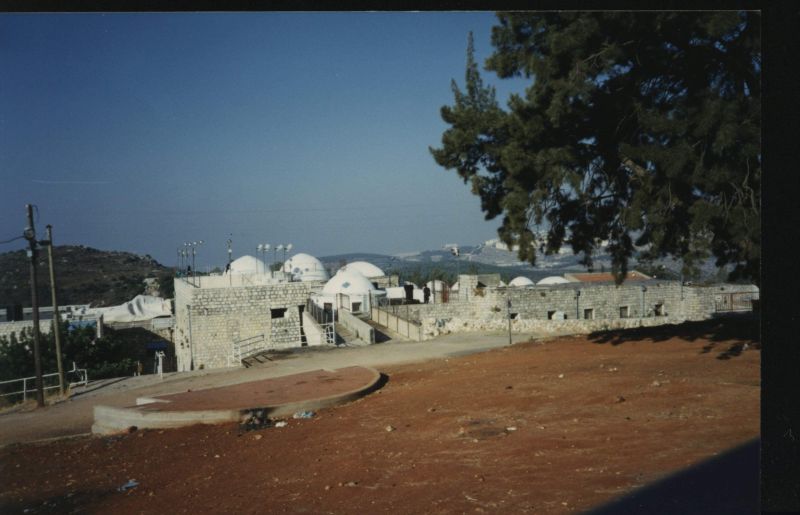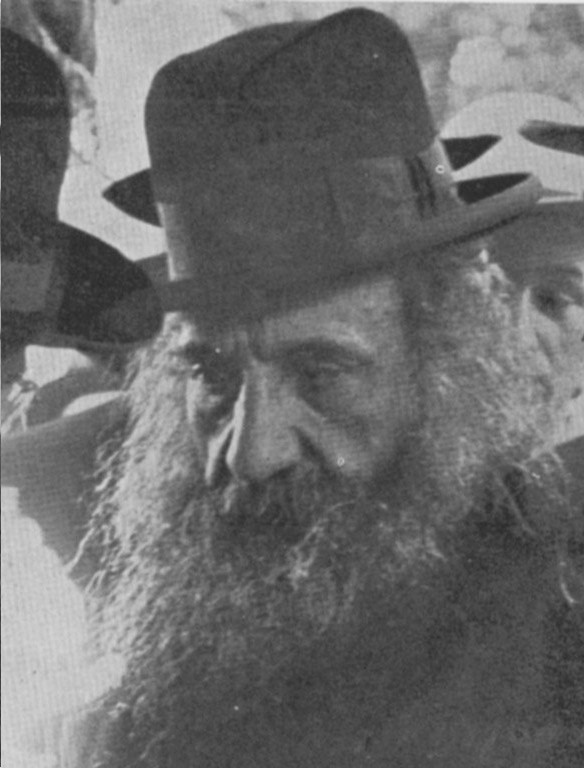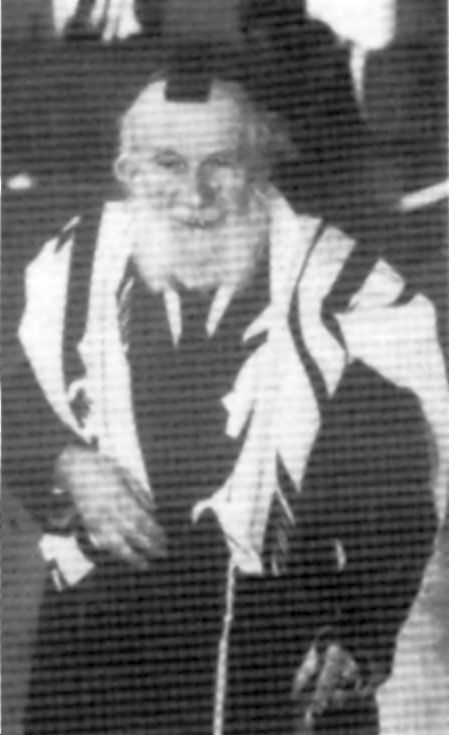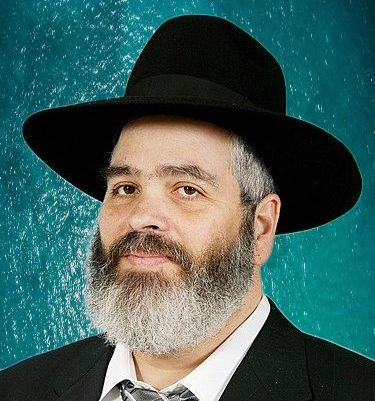| |
NEWS
This Google
Custom Search looks only in this website.
The Knesset Passed the Meron Law
The Knesset plenum approved this past Monday the first reading of a bill organizing the Meron-Bar Yochai-Lag BaOmer festivities. The bill was formulated by the Office of Yerushalayim and Jewish Tradition and was presented to the Knesset by the Minister of Yerushalayim and Jewish Tradition, Rabbi Meir Porush, the person responsible for the Rashbi events in Meron.
The purpose of this law is to assure that the festivities remain within the confines of the law, while protecting the safety of the celebrants but not damaging the long standing traditions of celebration at that site. 23 Knesset members approved the bill, without opponents or abstainers. It will now be transferred for discussion within the Committee for National Security.
Regarding the recommendations of those in charge of security and the investigating committee of the Meron tragedy, the pilgrimage to Mt. Meron will be conducted in numbers safeguarding the masses seeking to reach the site. The final sum of visitors will be determined according to the maximum capacity of the place, taking into account the new areas prepared for accommodating the public.
Similarly, ...

Matzoh in Days of Morror:
Shabbos Hagodol Always Precedes Freedom
HaRav Efraim Sokolover, rav of Ra'anna and a disciple of the Sabba of Slobodke, was one of the eminent Torah leaders in Eretz Yisroel of the past generation. He was a gifted speaker who related to the days of wrath in Europe in a Shabbos Hagodol address:
We commemorate 'Shabbos Hagodol' to remind us of our illustrious past dating back thousands of years to the exodus from Egypt. At that time we beheld the greatness of Hashem Yisborach in its full glory and grandeur. What do feel now of that beautiful, exceptional past, and what does Shabbos Hagodol say to us?
That selfsame Shabbos Hagodol continues on, generation after generation. It is written in Mechilta that Hashem wanted to redeem the Jews from Egypt to take them unto Him as a chosen, unique nation — and this very connection persists generation after generation as a mighty unbreakable bond which even the fiercest wind cannot shake and rend asunder. It was meant to entrench within us the awareness of 'with your bloods shall you live,' and that a Jew should give his all for his soul, for the blood of Pesach and the blood of circumcision.
The Secret Of Our Survival
This important essay was originally published before Pesach 1995 — Nisan 5755.
"And this is what has stood [firm] for us" (Haggadah Shel Pesach)
What is it that has stood by us, enabling us to survive all this time?
The answer is, "Because more than one power has arisen to destroy us..." Those who rise up against us preserve us. Our preservation is due to the fact that our enemies' persecution always causes us to return to Hashem, as Rashi explains at the beginning of parshas Nitzovim, that our suffering is what preserves us and enables us to remain standing.
The Initial Approach
The four sons mentioned in the Haggadah can be understood in an agaddic vein as referring to four consecutive generations.
The first is a Torah scholar who misdirects his wisdom and becomes a "man of cultured enlightenment." His son will be an evildoer who deserts Yiddishkeit. His son, the third generation, is ignorant and asks, "What is all this about?" Although he knows nothing about Judaism, he feels his deficiency and knows that there is something there to ask about. His son however, feels that it is of no concern to him at all.
Though to us it may appear that there is no hope whatsoever for such a person, this is incorrect. We are instructed, "You provide him with a beginning!" Go over to him and speak to him gently as the holy tannaim did (see Bava Metzia 85). They went looking for the children of ignoramuses and the offspring of Torah scholars who had left Torah, in order to bring them back to Hashem.

Self-esteem: A Guard Against Spiritual Deterioration
An excerpt from Hegyonei Mussar, edited by the author's son, Rav Avrohom Moshe Bruk. It was first published on Pesach 1995.
Bnei Yisroel were greatly respected by the Egyptians when they first descended to Egypt, at the time that Yosef was Pharaoh's viceroy. How did their status change so remarkably? How did they lose their prominent status to become a people of slaves engaging in arduous, menial labor?
"[Pharaoh] said to his people: `Behold, the nation of Bnei Yisroel are more numerous and mightier than we. Let us deal wisely with them. . . and they will go up from the land. . . They [the Egyptians] appointed taskmasters over them to afflict them. . . and they [bnei Yisroel] built treasure cities for Pharaoh. . . and they embittered their lives with hard work . . .. (Shemos 1:9-13).
The Seforno explains that the Egyptians wanted to deal "wisely" with them "by indirectly confronting them." By doing so bnei Yisroel would leave Egypt "by themselves, without our forcibly exiling them while lacking a clear reason, which would disgrace us before our enemies." By setting taskmasters to afflict the Jews, "they will agree to leave for another land." The treasure cities were then built by Bnei Yisroel, "who agreed to build them as a way of paying the tax. When the Egyptians saw them disgracing themselves to such a lowly level, they then enslaved them." The lives of the Jews were embittered with hard labor, "while they continued to sin in beliefs and deeds. . . and in this way their oppressors afflicted them."
The Seforno, our venerable commentator of Chumash, has revealed to us a remarkable secret! ...

Mesiras Nefesh in Siberia and Not Eating Chometz
It was erev Shabbos kodesh. Jews from all corners of the city are hastening to fulfill Hashem's command to prepare their Shabbos needs. The aromas of the baked goods and cooked delicacies fill the air. The Jewish streets, which bustle with activity, are like hives where the bees are waiting to savor the honeycomb — the sacred Shabbos. The voices of the vegetable merchants, urging people to purchase their wares, mingle with the noise of the busy street.
Shabbos kodesh...Shabbos kodesh is the message conveyed by the song which all are humming and is the thrust of all of the movement in the Jewish street in the Russian city of Slutsk.
The joy which found an abode in every home of the city stopped short at the threshold of R' Benzion Nisan, the melamed. In this household, sorrow prevailed, for its deathly ill master, R' Benzion, had felt so ill that day that he summoned his sons. As his many children gathered around his bed, he asked them to take siddurim in hand. The veteran melamed was preparing to leave this world. With a serious expression, the children opened the siddurim, and their father taught them how to recite the mourner's Kaddish.
"Yisgadal Veyiskadash shemai Rabbah," began the father. "Now say after me, word for word."

A Summary of the Iranian Attack
After celebrating the amazing success in overcoming the Iranian terrorist attack, the time has come for a provisional summation. Let us then begin with the huge miracles that accompanied it, where — aside from one victim, a Bedouin girl who got hurt from shrapnel — there were no casualties whatsoever. No one denies that the impressive success surprised even the greatest experts who fully admit that the number of successful interceptions is way beyond any known statistics. That having been said, let us analyze the victory and break it down to its components.
Iran sent 185 drones, each of which takes some six hours to reach its destination. After they were detected, there was plenty of time to intercept them. Israel was not the only one to do so. The U.S., Britain, France and even Jordan joined the fray. It is no easy feat to shoot down such a small aircraft but the protective aerial systems have already learned how to deal with such craft and indeed, succeeded in shooting them down, which is not so surprising, taking into account the lack of the element of surprise in the attack.
Then there were thirty-six cruise missiles shot down, not a large number considering that these also take time to reach their destination and that the coalition countries also possess defense systems, so that their shooting down is not really surprising.
There remain 110 ballistic missiles which also take time to get here from Iran, but much less than the others. Contrary to the others, these missiles fly high in the atmosphere before landing. Some of these were destroyed up in the air, yet some of them did succeed in evading all defense systems and landing on the air base in Nevatim.


Rain and Kinneret Watch
by Dei'ah Vedibur
Staff
Our weekly report of the rain and the level of the Kineret -
Winter, 5784.
* * *
We look forward to bringing a Paschal lamb

* * *
|




